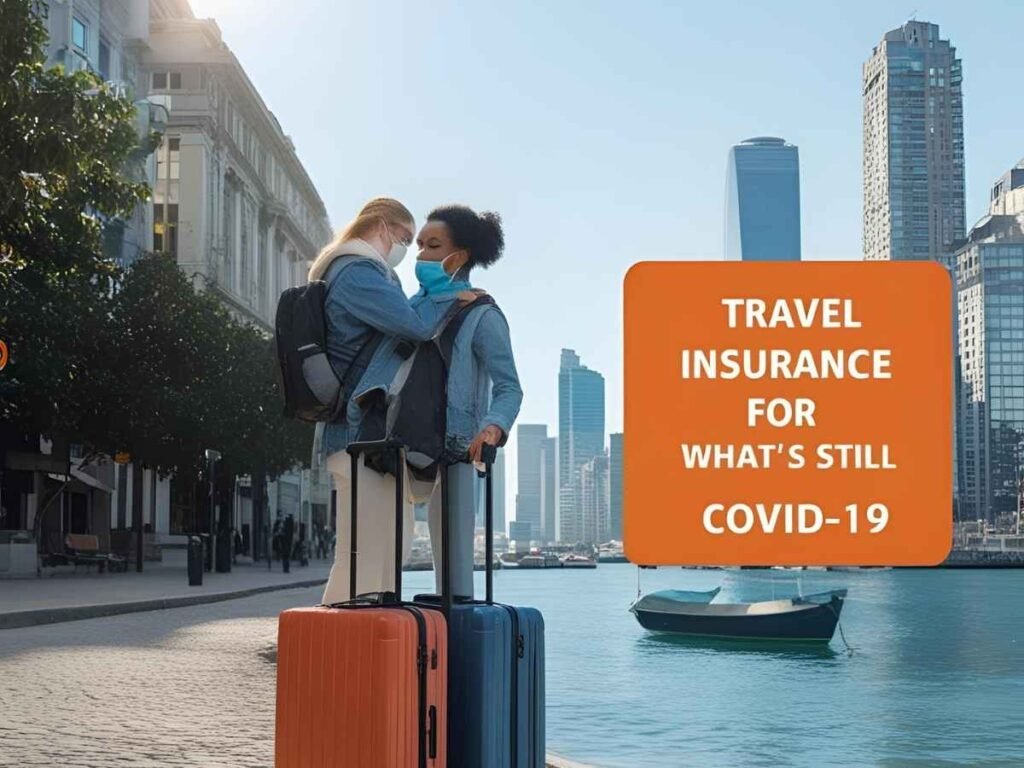
As we navigate through 2025, COVID-19 continues to impact travel plans worldwide, albeit in different ways than during the height of the pandemic. While many restrictions have eased, the virus remains a concern for travelers who want to protect their investment and health. Understanding what travel insurance covers regarding COVID-19 has become essential knowledge for anyone planning domestic or international trips.
Current State of COVID-19 Travel Insurance Coverage
The travel insurance landscape has evolved significantly since the early pandemic days. Initially, most insurers excluded COVID-19 entirely as it was considered a “known event.” Now, many standard policies include specific COVID-19 protections, though with important limitations and requirements.
Most standard travel insurance policies now treat COVID-19 like any other illness for certain benefits, particularly:
- Trip cancellation if you test positive before departure
- Emergency medical treatment if you contract COVID-19 while traveling
- Trip interruption if you test positive during your journey
However, it’s crucial to understand that not all COVID-related situations are covered under standard policies, and coverage varies significantly between providers.
What’s Typically Covered for COVID-19
Trip Cancellation Due to COVID-19 Diagnosis
If you contract COVID-19 before your trip and cannot travel, most policies will reimburse your prepaid, non-refundable expenses. According to Squaremouth, most standard policies include this coverage, but you’ll typically need to provide:
- Documentation of a positive COVID-19 test
- A physician’s statement confirming you cannot travel
- Evidence of when symptoms first appeared
Some policies have time restrictions, such as not covering COVID-related cancellations within the first 7 days after purchasing insurance, so timing your purchase appropriately is essential.
Medical Treatment for COVID-19 While Traveling
If you’re diagnosed with COVID-19 during your trip, comprehensive travel insurance typically covers:
- Doctor visits and hospitalization
- Prescription medications
- Testing costs when medically necessary
- Emergency medical evacuation if required
For international travel, experts recommend policies with at least $50,000 in medical coverage, with $100,000 or more for cruises or travel to remote locations.
Trip Interruption and Quarantine Expenses
If you test positive during your trip and must quarantine or return home early:
- Trip interruption benefits may reimburse unused, prepaid expenses
- Additional accommodation costs during mandatory quarantine
- New transportation expenses to return home once cleared to travel
Some policies have extended their standard coverage limits specifically for COVID-related quarantines, providing coverage beyond the typical 5-day limit for trip interruptions.
What’s Generally Not Covered
Understanding what’s not covered is equally important:
Government Travel Advisories and Border Closures
Standard policies typically don’t cover cancellations due to:
- Government-issued travel advisories
- Border closures or entry restrictions
- Destination-specific COVID-19 testing or vaccination requirements
Fear of Traveling
Canceling your trip simply because you’re concerned about contracting COVID-19 is not covered under standard policies. As one Reddit user discovered, “travel fares are no longer covered under COVID cancelation because of some change regarding COVID as an ‘unforeseeable event.'”
General Quarantine Requirements
If a destination requires all travelers to quarantine upon arrival (rather than due to your specific COVID-19 diagnosis), standard policies won’t cover these expenses.
Special Considerations for COVID-19 Coverage
Cancel For Any Reason (CFAR) Coverage
For maximum flexibility regarding COVID-19 concerns, CFAR coverage remains the most comprehensive option. This upgrade typically:
- Allows cancellation for any reason, including fear of COVID-19
- Reimburses 50-75% of prepaid trip costs
- Must be purchased within 14-21 days of initial trip deposit
- Costs approximately 40-60% more than standard policies
Destination-Specific Requirements
Some countries still require visitors to have COVID-specific travel insurance. According to Squaremouth, these include:
- Cuba: Non-U.S. medical insurance covering COVID-19
- Saudi Arabia: Coverage for coronavirus infection risks
- Fiji: Proof of medical insurance covering COVID-19 costs
Always check your destination’s current requirements, as these can change frequently.
How to Make a Successful COVID-19 Insurance Claim
Based on traveler experiences shared on Reddit, successfully claiming COVID-19 coverage typically requires:
- Proper documentation: Obtain a positive PCR test from a licensed clinic or physician, not just a home test.
- Medical certification: Many policies require a doctor to certify you’re unfit to travel. As one traveler advised, “I called the doctor’s office. Told them about my positive test, and asked them to fill out the form.”
- Follow proper procedures: Don’t cancel bookings until speaking with your insurance provider about the correct process.
- Keep all records: Save all medical documentation, test results, and communications with travel providers.
Choosing the Right COVID-19 Travel Insurance in 2025
When selecting travel insurance with COVID-19 coverage:
- Read the fine print: COVID-19 coverage varies significantly between policies. Verify exactly what’s covered before purchasing.
- Consider your destination: Some locations have higher medical costs or specific insurance requirements.
- Evaluate your risk factors: If you have concerns about COVID-19 beyond contracting it yourself, CFAR coverage might be worth the additional cost.
- Check timing requirements: Many benefits, including pre-existing condition waivers and CFAR coverage, are only available if purchased shortly after making your initial trip deposit.
Conclusion
While COVID-19 travel insurance coverage has become more standardized in 2025, understanding the specific protections and limitations remains crucial. Most standard policies now cover COVID-19 diagnosis before or during travel, but other pandemic-related disruptions often require additional coverage.
Before purchasing travel insurance, carefully review policy documents, paying special attention to COVID-specific language, documentation requirements, and claim procedures. With the right coverage in place, you can travel with greater confidence knowing you’re protected against one of the most significant travel disruptions of our time.
Remember that insurance providers and coverage details continue to evolve, so always verify the most current information directly with insurers before making your purchase decision.